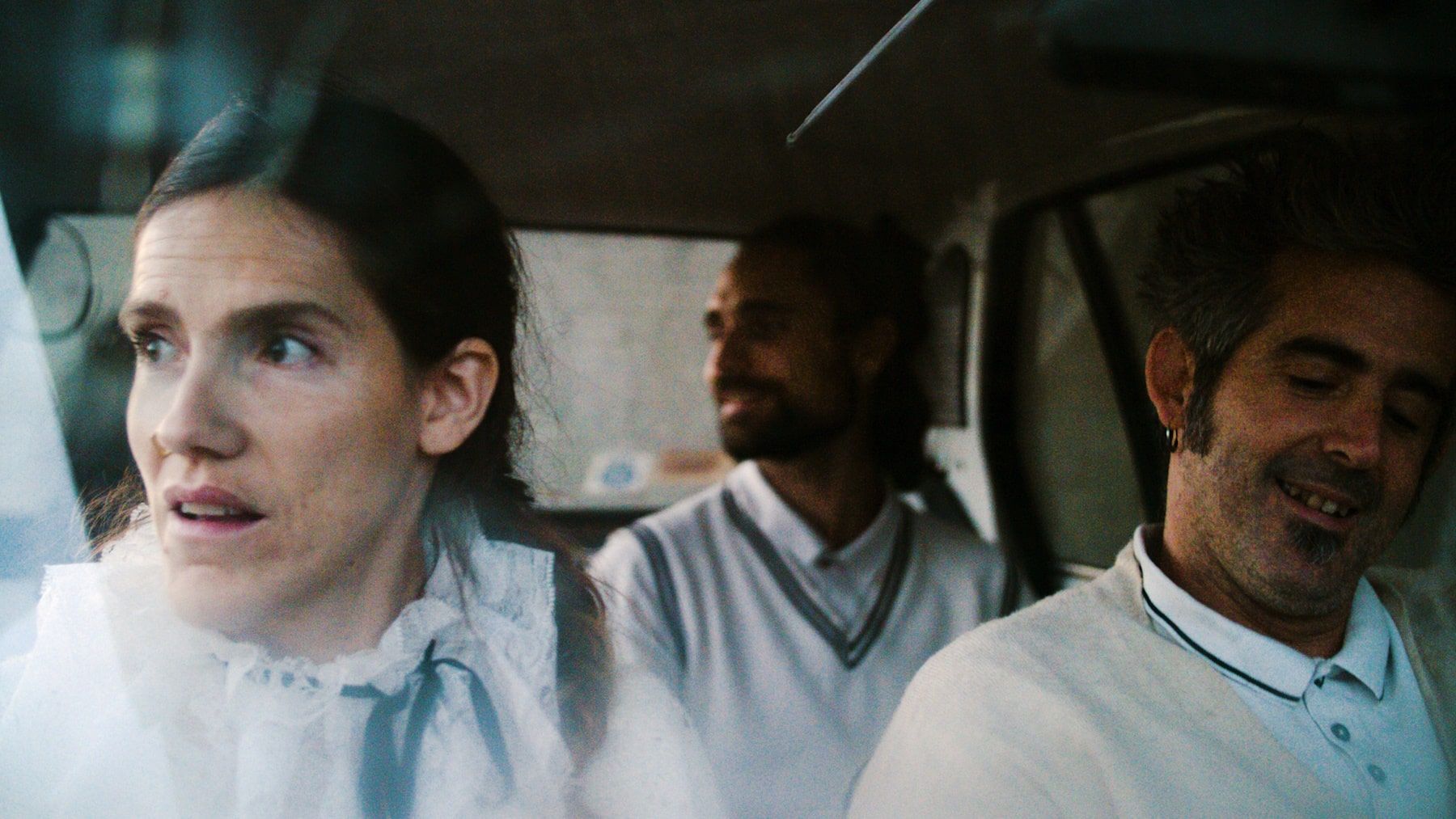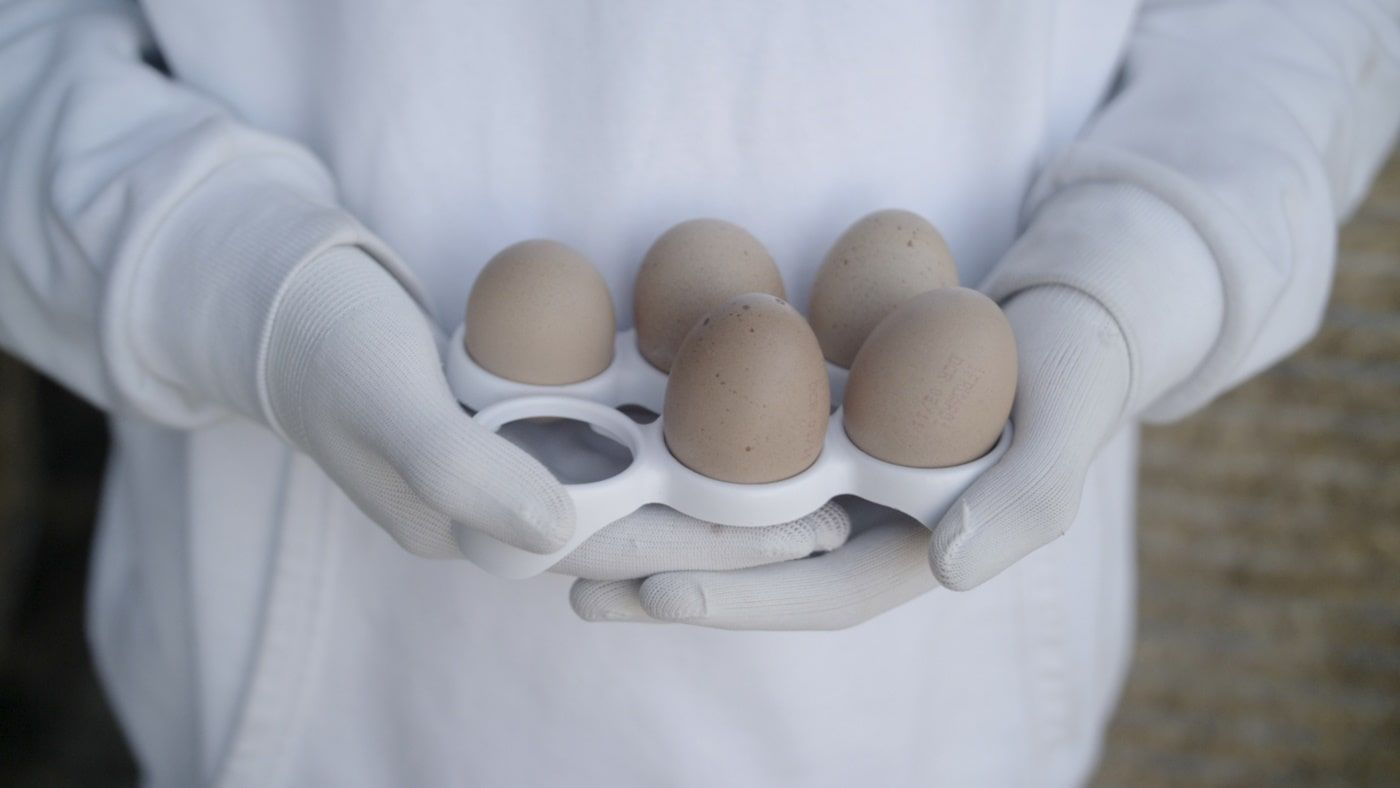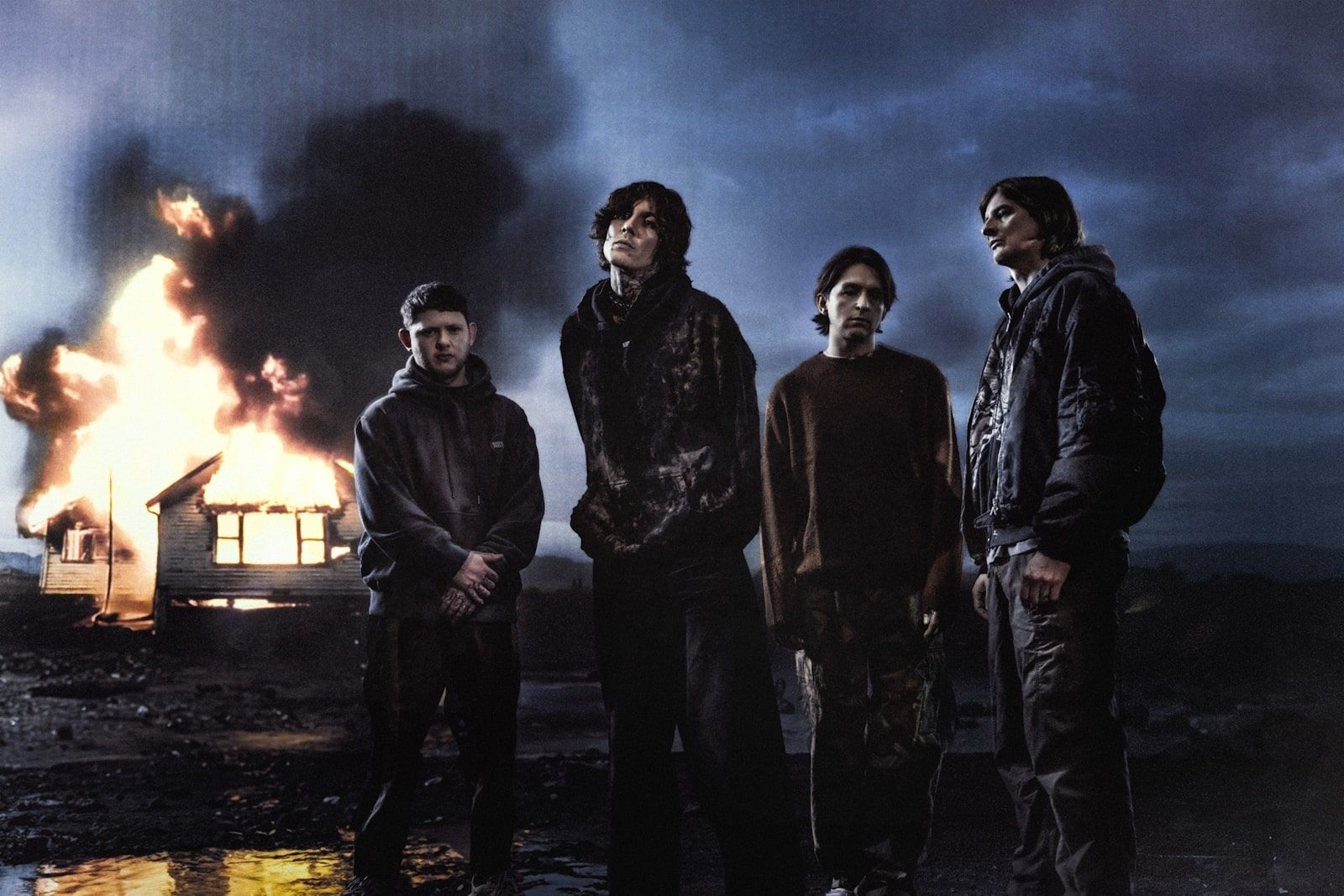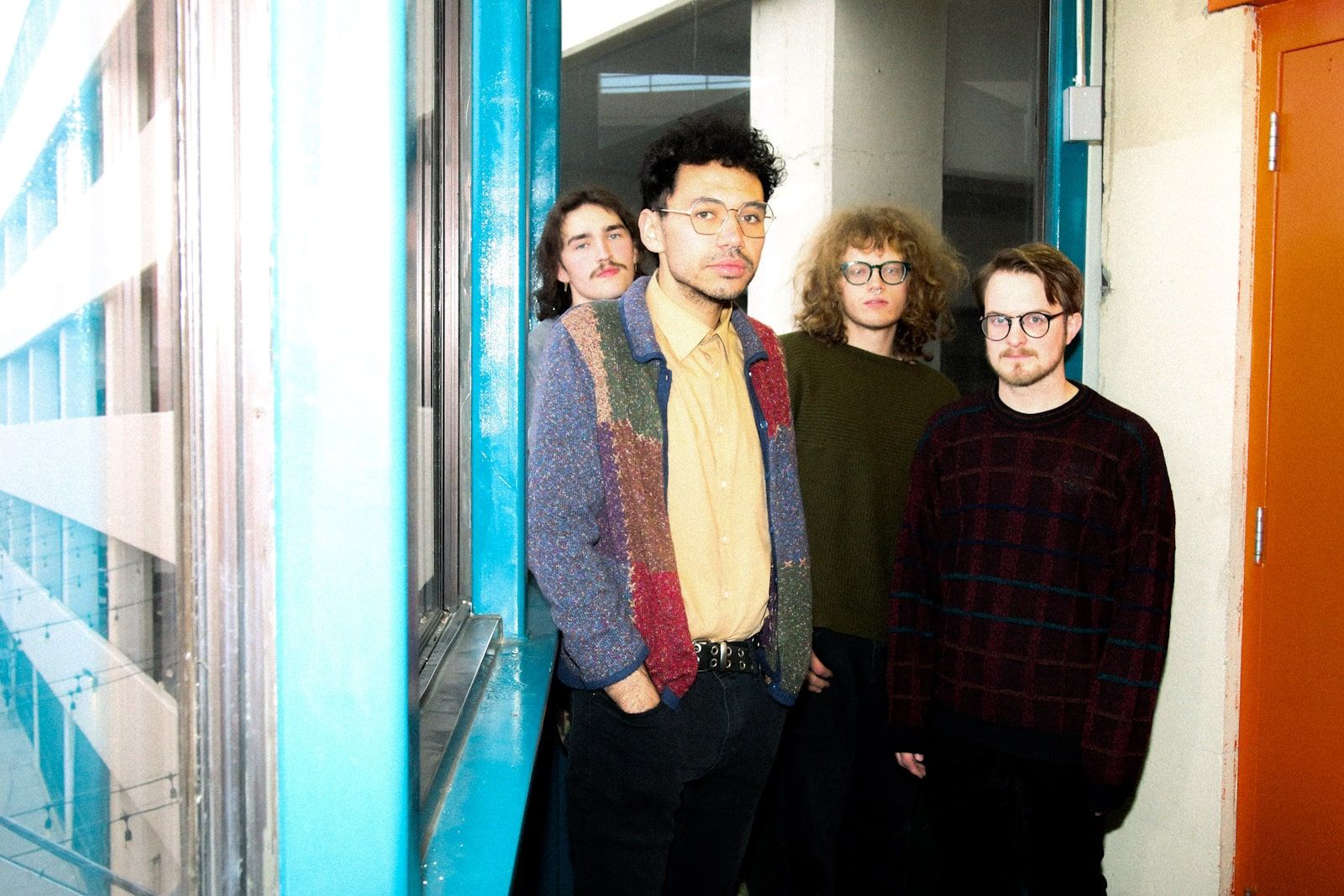We recently had the pleasure of interviewing THE DIOGENES, a band whose unique blend of grunge, punk, and rock challenges the norms of our capitalist society. Their debut album, “Qui pourrait craindre le bien?” serves as a proof to their distinctive sound and thought-provoking messages.
THE DIOGENES draw inspiration from the 90s rock scene and the nonconformist philosophy of ancient Greek cynics, creating a sound they describe as psycho-aristocratic grunge-rock-punk.
Their music combines humor, cynicism, and a sharp critique of contemporary capitalism, aiming to use their platform as a tool for activism. They prefer to perform in venues that resist mainstream capitalist values, striving to spread their anti-capitalist message even in spaces typically dominated by commercial interests.
Their debut album is a reflection of the band’s commitment to addressing serious societal issues through their music. From the mental health struggles explored in “Pillow” to the biting commentary on consumerism and environmental destruction in “Gluttony,” each track is a narrative that speaks to the band’s values and experiences. “Religion Cathodique” criticizes the mass media’s role in shaping public opinion, while “The Lord” takes a stand against patriarchy and societal expectations of masculinity.
The album also includes moments of introspection and homage, such as “Tiny Lighted Window,” which celebrates love, art, and the small joys in life, and “Pink Song,” a love song that highlights resilience amidst societal violence. Tracks like “Neo-libéralise moi” and “Sacrifice à Dieu” further the band’s critique of neoliberalism and the inherent corruption of power structures.
THE DIOGENES have a broad range of influences, citing bands like MR. BUNGLE, SYSTEM OF A DOWN, PRIMUS, and NIRVANA, among others. Their eclectic style is also inspired by Michael Haneke’s film “Funny Games,” which influences their onstage persona and societal commentary.
Dive into the full interview below to get an in-depth look at the band’s philosophy, creative process, and their vision for the future.
“Qui pourrait craindre le bien?” translates to “Who could fear good?”—an intriguing title. Can you share the story or concept behind this choice and how it reflects the essence of the album?
It is a sentence which was pronounced by Diogenes of Synope, from whom we take inspiration, facing Alexander the great
In Corinth, Alexander the Great was introduced to the Cynic philosopher Diogenes, who lived in a barrel. – What can I do for you? Alexander asks him, touched by the misery in which Diogenes lives.
– Get away from my Sun, Diogenes would have replied
Stunned (we bet he was: he is the greatest king of his time, we shouldn’t talk to him like that every day),
Alexandre asks him:
– Are you not afraid of me?
– What are you then? Good or bad?
– A good one, replies Alexandre.
– Well then! exclaims Diogenes. Who could fear anything good?
We feel close to the posture of Diogenes the Cynic, we seem to prefer sunlight to the artificial lights of the city, solitude to the comedy maintained by our share of social conventions… We are wary of what human qualifies as good or bad particularly when we look directly at the concrete reality of the capitalist system in which we live, presented as good. When we look at the men of power who maintain in place this deadly system which monopolizes all the resources of the living, without at any time their benevolence being called into question.
The themes on the album range from mental health to critiques of consumerism. How do you balance such heavy, diverse topics while maintaining a coherent sound and message?
We are not really well placed to know if it is actually coherent, that said it reflects our state in current reality and although it may seem scattered, it seems to us that our emotional and mental state also depends greatly on the state society in which we evolve.
It does not seem trivial to us to note that the more hostile the state becomes, the more the suicide rate increases. Consumerist religion tends to suggest that we are solely responsible for our happiness and that it is only a question of individual will, and we even have a kind of bible called personal development which promotes a kind of diktats of the positivism and blaming for so-called dark ideas, in other words negative and harmful, we conversely believe that criticism is a most useful tool for the brain, and for the construction of a reality which takes into consideration the deepest aspirations of each one and not just the most superficial ones.
Your track “Pillow” discusses mental disorders and isolation. How does your personal experience inform your music, and what message do you hope to convey to listeners struggling with similar issues?
This piece was written by a friend on the art collaboration site HitRECords in 2016, based on a photo of a woman screaming in pain into her pillow.
From there, we created the music and rearranged the text to make it singable ^^
We obviously draw inspiration from our own troubles and the environment in which we evolve; in the musical world it’s quite common to encounter a lot of so-called atypical profiles. I don’t really know if we have anything to say on such a vast subject, that said for us music is a central element of life, which helps us to rethink society, which helps us to maintain a social bond, which allows us to meet people who are breaking away from the consumerist way of life, which allows us to focus our attention elsewhere than on the dysfunctions of a poorly organized society, sometimes it is also exhausting and it leads to isolation in moments of excess of social interactions but overall it is a healthy medication, and above all in addition to an artistic or stimulating practice we advise anyone not to look only at their own interior, to not forget to look at the way in which we organize ourselves, the way in which oppression functions and reproduces and not to underestimate the harm of our shaky organizations on the mental health of all the actors and actresses of our societies.
“Religion Cathodique” critiques the role of mass media in shaping public opinion. Can you delve into your views on media influence and how you see it evolving in today’s digital age?
Well, as its name indicates it’s an old piece, the media are indeed no longer broadcast by cathode ray tube ^^.
That said, it is proven that in France the men of power (large industrial owners such as Bernard Arnault, Xavier Niel, Vincent Bolloré… are currently in a “civilizational war” (according to Bolloré himself) that they intend lead through the appropriation of mass media, and we observe from year to year that the more the media are owned by multi-billionaires, the more the policies are in favor of these industrialists, the more the freedom of expression is in danger (recently Guillaume Meurice a french humorist/journalist was fired for obscure reasons about one of this jokes and without factual reason) and the tone of the media becomes more and more conservative.
The only thing we can hope for is that independent media continue to emerge, (Blast – Le canard réfractaire – Lundi am, Le media…) but in a world where money, possession are the greater powers it will be difficult to ensure that we benefit from free information and not biased by interests as long as we have not created a truly independent media power
“Gluttony” talks about humanity’s resource extraction and environmental impact. What are some specific changes you believe society must make to address these issues effectively?
We do not have to decide anything on our own, what would be desirable would be to look reality in the face collectively, and decide collectively what it would be useful to do to preserve our resources, our environment and not continue to destroy the living. We do not wish to replace power but rather to destroy it (since, remember, it is cursed) There were citizens’ conventions which could offer interesting ideas, but which were thrown in the trash, our political powers preferring to make measures that they are the only ones to qualify as ecological and sustainable, for the moment we are far from taking the proper measure of the disaster that we ourselves have caused… Currently we are in a total denial of democracy and in a situation where liberal democracies are becoming more and more tense and reducing the space of freedom, there is a tone which is a bit reminiscent of before the Second World War, in my opinion the best thing to do would be to try really to democracy and to ensure that it is as enlightened as possible, a priori if common sense returns to the center and we defend less financial interests than the common good, then naturally we will collectively worry about our future ( not so much in the long term given the proximity of the wall which threatens us.)
“Tiny Lighted Window is a tribute to love and the arts. What role do these elements play in your life, and how do they influence your creative process?
As I told you above, music and the arts are pillars in our lives, without maintaining a creative spirit, I don’t know what I can do except waste away…
It’s a bit of the same energy as that of love, it’s a look turned towards beauty, it seems to me that art is, in addition to being an outlet for what is dysfunctional, also in part a tribute to what is beautiful. Love for its part is a direct expression of beauty, it is the same language as that of poetry. Capitalist values end up drowning a little the meaning of life and reduce individuals to their only place/usefulness in society, he could coldly consider love as useless when it is one of the only anchors of what can make still meaning in this world.
“The Hole” addresses depression and societal factors contributing to it. How do you personally cope with these challenges, and what advice would you offer to others facing similar struggles?
It’s a bit like with Pillow, we don’t have a message to convey like a pastor or whatever type of preacher would. We have no truths, we just share our experience and what helps us distance ourselves from the abyss of depression. The solutions we apply are only personal and I would not advise anything that would only be a partial truth for myself. Especially since the goal of this song is not a manual for getting out of it but the sharing of an observation of these moments.
“Neo-libéralise moi” critiques the neoliberal empire. How do you envision a world beyond neoliberalism, and what steps do you think are necessary to achieve it?
As above, we are not politicians, so what we would like is to be concerted in decision-making and break with a model which has demonstrated its ineffectiveness (we have been in crisis since our birth.. ..)
For what would seem desirable to us, perhaps encouraging solidarity solutions, mutual aid, reducing the notion of ownership, trying to be more collegial and sharing decision-making.
Get out of all forms of domination over others regardless of the choice of reading grid giving a privilege or a handicap to that other, get out of patriarchy and limiting beliefs which make people fantasize about superiority or inferiority instead of a simple difference.
Your music is described as a mix of grunge, punk, and “psycho-aristocratic grunge-rock-punk.” How did you develop this distinctive style, and what artists or genres have most influenced your sound?
We really have a lot of influences that it would be very difficult to qualify as we would like to pay homage to all the groups who have shaped our sound or our outlook…
But in the Diogenes we could cite /Mr Bungle/Suicidal tendencies/System of a down/Primus/Pennywise/NOFX/RATM/The Vines/Pantera/The Offsprings/Lamb of God/Bad religion/Tool/The dead kennedys/Lofofora/ Trust/Nirvana/Alice in chains, but many more…
We don’t really like chapels so we like to mix influences.
For the aristocratic side it’s because our characters are inspired by the film “Funny games” by Michael Haneke, we wanted to embody societal and social violence on stage by wearing the clothes of these young aristos, because we are very fond of carnival .
Humor and cynicism play a significant role in your lyrics. How do you use these elements to address serious societal issues without diminishing their importance?
Humor and satire have always been very good weapons to deflate the seriousness of the world. Laughing is already a victory over potential suffering that we would suffer in a more violent way without this laughter. Personally, I don’t believe that laughing at a subject reduces its importance. Serious subjects can be approached in several ways, with The Diogenes we decided to do satire and provocation in order to open up spaces for reflection on subjects which basically do not make people laugh and can seem too serious. , laughter is one of the gateways to tackling a subject, there are others.
Can you share any specific literary or philosophical works that have had a profound impact on your music and lyrics?
Hey, I’m a proletarian, you’re going to worry me if we start talking about books ^^ Moreover, Diogenes is a philosopher without writings, so that doesn’t help our affairs ^^
In reality Nietzsche (minus the misogynistic side) is a powerful and very stimulating thought. We can also cite current people, Pacome Thiellement, Alain Damazio, Barbara Stiegler, François Bégeaudeau who help to think about today’s world and Otherwise Barjavel as well but more for other parallel projects, it is an influence less present in The Diogenes which draws more of these influences, from pop culture, politics and verbal jousting on social networks, more than from literature which is a useful weapon but too bourgeois and well-bred for that damn Diogene.
You mentioned using your band as a tool for activism, especially in anti-capitalist spaces. Can you describe some of the most memorable or impactful performances or events you’ve been part of?
I think the most significant event was to support DAL 31 and the Abbé Pierre solidarity center, on the roof of their building, which has since been destroyed by the mayor of Toulouse (Jean Luc Moudenc the great – Notre Alexandre ) to accommodate bourgeois housing, distort the popular side of this neighborhood, gentrify ever more and above all not rehouse these associations which fight against precariousness and which do work that the town hall does not do (it prefers to invest in anti-social street furniture). homeless and leaving precarious families on the street in total isolation…)
This moment was during the COVID period but we were able to do this concert so it was in addition to the activist dynamic a very beautiful moment of communion and exchange.
How do you navigate performing in mainstream venues while staying true to your anti-capitalist message? Have you faced any challenges or pushback from the industry?
For the moment we play mainly in alternative places and when we have done festivals or other events which draw a few people to Toulouse (in any case) we have always had obstacles in the wheels, but hey Toulouse at the moment is is a giant obstacle in the way of all people who want to live other than in a bourgeois silence afraid of anything that does not resemble a worthy individual…
What role do you believe music and art play in social and political movements, and how do you see your work contributing to these causes?
Art has always been a political tool, here we must make a distinction between entertainment, which has the role of diverting attention and which is a tool of the powerful to keep their hands on the minds and the dominant discourse and the ‘Art which by essence seeks to put itself on the side of freedom and which can never be on the side of power, even the latter thinks itself benevolent. We contribute modestly to this artistic heritage and create bridges between political events and cultural events because ultimately they work or rather should work hand in hand
Can you recommend any up-and-coming artists or bands from your local scene that you discovered in 2023 and think deserve more attention?
The emerging scene is really extremely rich around Toulouse, I find it hard to say if there is really a trend, at least not quite aesthetically, on the other hand I am very happy to see that it there are groups who are struggling to organize concerts, trying to attract people to keep what is called counter-culture alive and who are also trying to create social bonds and maintain human relationships in an increasingly society. digitized and under the hypnosis of the digital cocoon.
So I’m only going to be able to name a few groups that we love and that we discovered quite recently and that are trying to shake up this underground scene in the south, but there are lots of others to discover!!
Sociopark – Fenwick – Turbo semelle – Nervicid – Euphorya – LYRAE – Noel Flantier – Tiroir tiroir – Coma child – Distortion Ride…
And there are also places that help keep this alternative culture alive.
Le Moun’s – Le celtic Pub – Le Rock’eup – La Mauvaise Foix…
And we obviously miss the huge rock cellar/Mix Art Myris which was closed and many places which no longer offer their joyous noise today!!
Given the themes and sound of “Qui pourrait craindre le bien?,” where do you see your music heading next? Are there any new directions or concepts you’re excited to explore in future projects?
HA ha, we might be forced to do acoustic punk in the next few years…
Otherwise it’s difficult to say, we always have the impression of being off the mark, so I will tell you that we will try to have a more incisive sound and in the end our next album will be softer.. Difficult to say, in any case we will stay on course to do something authentic, something outrageous.













